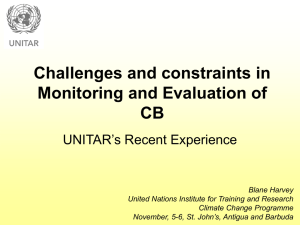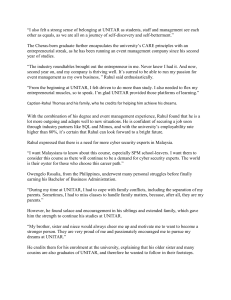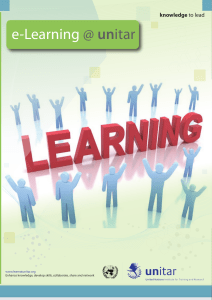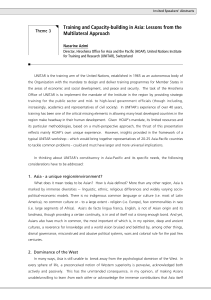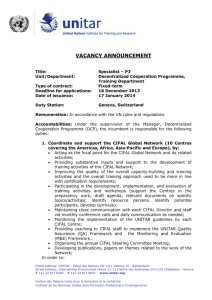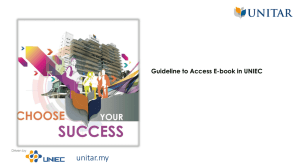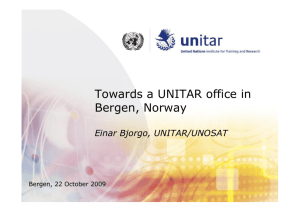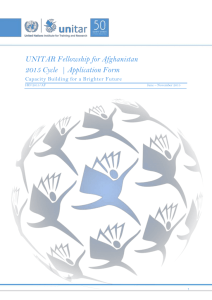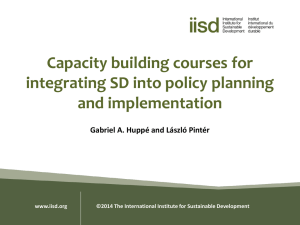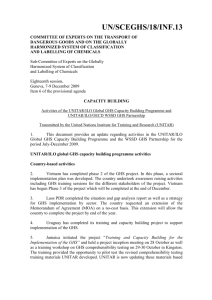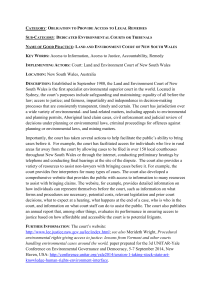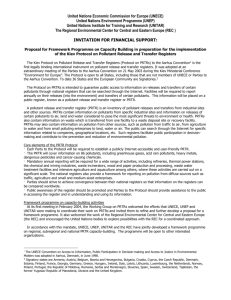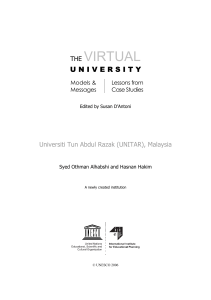Concept Note
advertisement
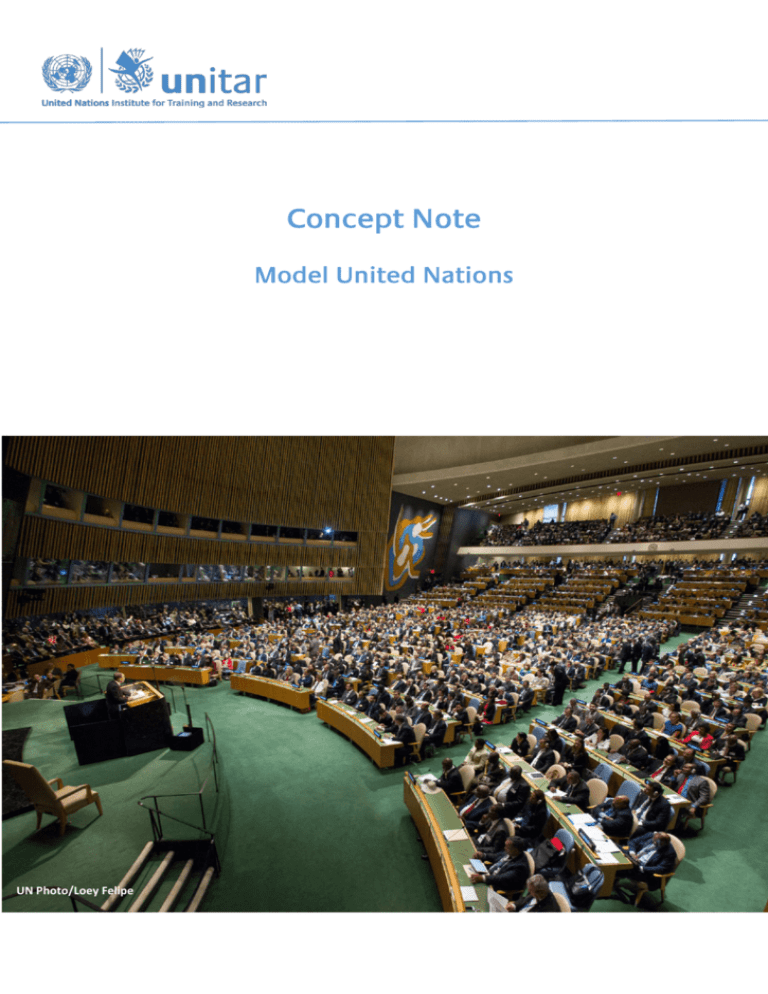
Concept Note Model United Nations UN Photo/Loey Felipe UNITAR Model United Nations UNITAR and its Multilateral Diplomacy Programme Established in 1965, the United Nations Institute for Training and Research (UNITAR) is a principle training arm of the United Nations, working in every region of the world with a mission to develop capacities, enhance global decision-making and support country and regional-level actions for shaping a better future. Currently, UNITAR provides training to approximately 36,000 participants per year in some 500 different training activities and uses both face-to-face and distance learning methodologies. Over the past decade, UNITAR has been actively engaged in enhancing the facilitation of international and regional conferences, meetings and negotiations, public sector work in the context of international affairs, and diplomatic engagement in relation to the United Nations and its System. At the heart of UNITAR, the Multilateral Diplomacy Programme (MDP) delivers training and support workshops to address the needs of diplomats, government officials, international civil servants and private sector entities to meet emerging, complex and global challenges. It builds capacity and develops skills specifically suited to UN contexts such as Introduction into the UN System, Rules of Procedure of United Nations Conferences, Drafting UN Resolutions, Conference Diplomacy and Multilateral Negotiation, Public Speaking, United Nations Protocol, Negotiation Skills and Techniques, and others. UNITAR’s experts have many years of experience in the UN and/or national diplomatic services and are able to share first-hand, up-to-date information and experience. UNITAR and Model United Nations Model United Nations, is an educational simulation and academic competition in which students can learn about diplomacy, international relations, and the United Nations. MUN involves and teaches researching, public speaking, debating, and writing skills, in addition to critical thinking, teamwork, and leadership abilities. Model United Nations are particularly popular among students in the secondary and tertiary educational sector. UNITAR, with its mandate to build capacity among diplomats and member states, offers a unique opportunity for students and institutions interested in engaging in a Model United Nations. UNITAR also offers the opportunity to conduct MUNs at actual UN locations, giving the activities an authentic atmosphere and experience. UNITAR offers to plan, prepare and conduct a tailored Model United Nations for interested institutions. Overall goal and learning objectives The goal of a Model United Nations is to provide participants with an insight into the functions and procedures of the United Nations System. We want to prepare the diplomats and UN officials of tomorrow, training them in the values of the United Nations, its charter and functioning. UNITAR offers a unique opportunity to interact with UN officials, acquire knowledge and get the most out of a Model UN. UNITAR offers a Model UN with the true UN experience. At the end of the activity, participants will be able to: - Understand and apply the rules of procedure and functioning of the UN System; - Explain the importance of informal consultations; - Draft a United Nations resolution; - Perform more efficiently as a negotiator; - Perform more efficiently when speaking in public. Activities UNITAR is able to offer two kinds of activities: 1. Model United Nations: a simulation over several days, during which participants need to assume roles as diplomats and representatives of real countries, research these countries and their policies 2 UNITAR Model United Nations in advance, prepare position papers and resolutions, present and debate them and adopt resolutions in the bodies. Participants can represent a country either individually or in a team, depending on the scope of the MUN. Participants will need to act authentically and represent their country to the best of their knowledge and ability, making the simulation as realistic as possible. MUNs can focus on the work of the following UN bodies (either individually or combined, depending on the size of the MUN): General Assembly, Security Council, ECOSOC, and Human Rights Council. Further bodies may be available upon request. 2. Skill development training: UNITAR can offer training workshops in advance of a MUN to enhance the skills of the participants ahead of the simulation. Training workshops may focus on topics and skills such as Introduction into the UN System, Rules of Procedure of United Nations Conferences, Drafting UN Resolutions, Conference Diplomacy and Multilateral Negotiation, Public Speaking, United Nations Protocol, Negotiation Skills and Techniques, etc. Furthermore, UNITAR is able to offer all activities at actual UN sites, increasing the authenticity of the MUN and thus the experience for participants. This may also include visits to UN institutions, observation of real conferences or meetings, and meetings with UN staff or diplomats. Deliverables: Model United Nations lasting from 3 to 5 days. Cost: depending on duration, location, number of participants, and number of training activities. Language UNITAR can offer all activities in both English and French. Participants Between thirty and several hundred Students (High School or University). Evaluation UNITAR will conduct thorough evaluation of all activities, following Kirkpatrick assessment / evaluation methodologies. The results of these evaluations will feed-in to continuous improvements of the activities to ensure best results and achievement of objectives and expected outcomes. Resource Persons The trainers and resource persons will be experts in the United Nations System who regularly train within the framework of UNITAR’s Training Programme on Multilateral Diplomacy. Contact Multilateral Diplomacy Programme United Nations Institute for Training and Research (UNITAR) Palais des Nations, Geneva, Switzerland diplomacy@unitar.org 3
